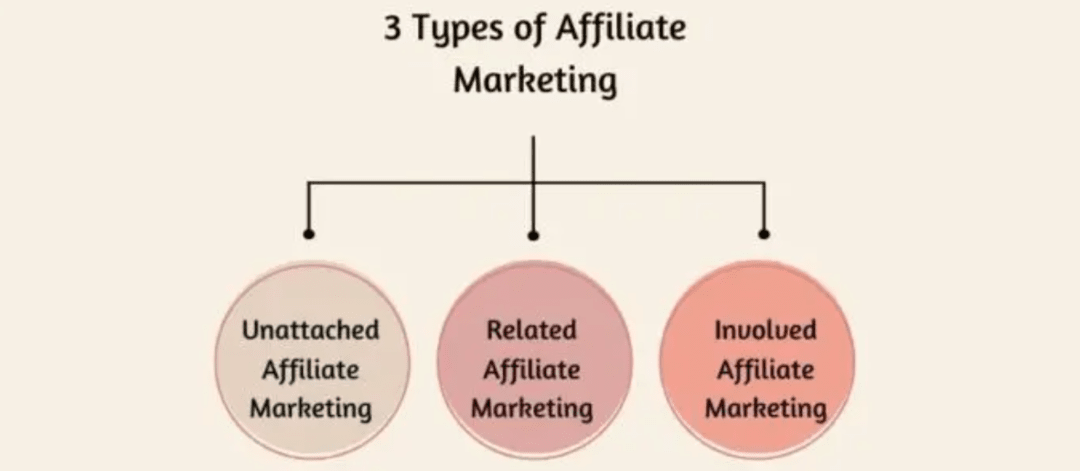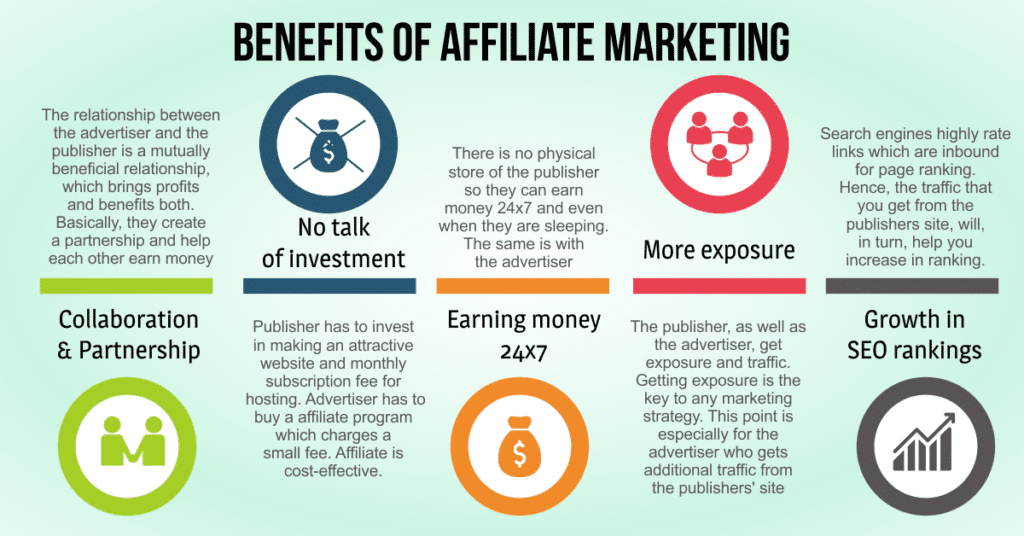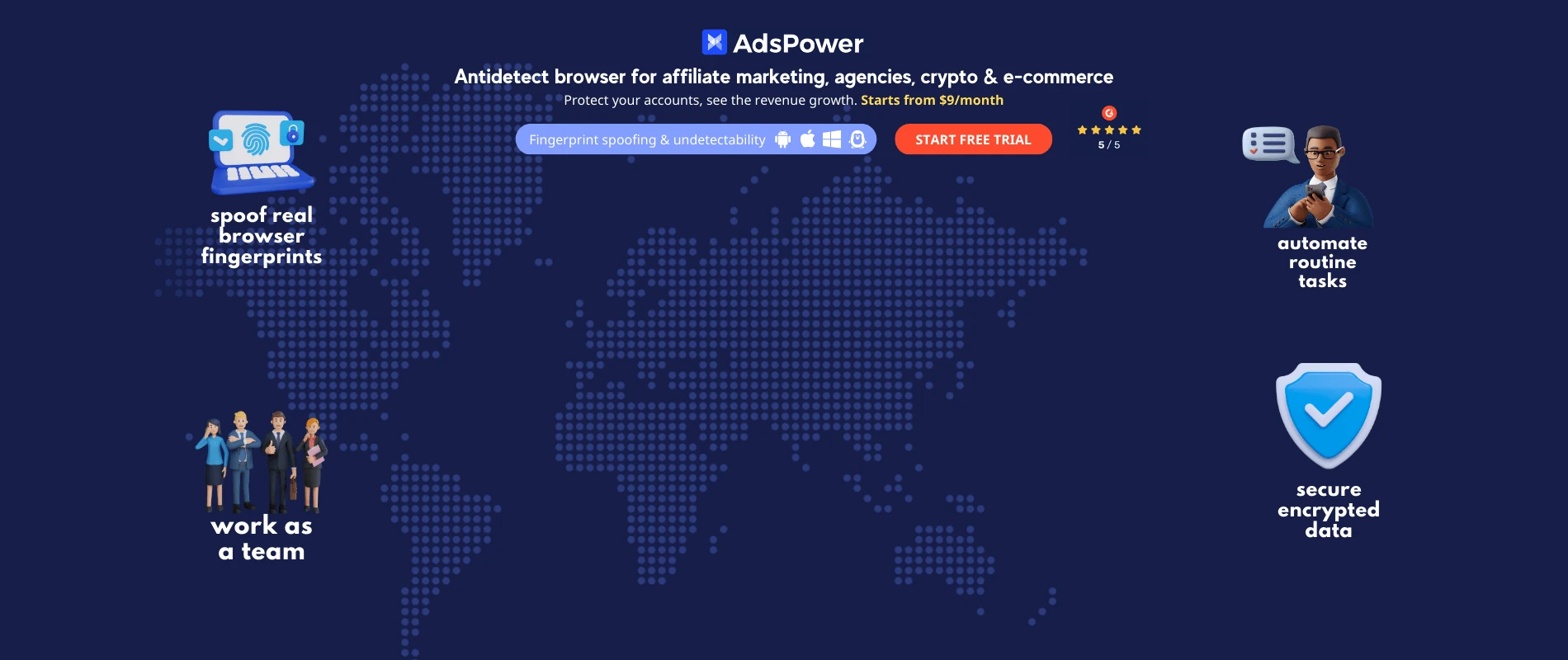Affiliate Marketing Overview
This guide starts with a solid introduction to affiliate networks, defining affiliate sales and marketing and how it works. It explains the four key players involved in affiliate revenue – merchants, affiliates, affiliate networks and consumers and how affiliate networks connect these groups. By breaking down the process of affiliate sales and marketing, from tracking affiliate links with cookies to earning commissions, the guide makes sure even beginners understand the basics of affiliate networks.
One notable example many how affiliate marketing work for marketers is Amazon’s affiliate marketing program, known for its massive reach and tens of thousands of opportunities for affiliates to earn commissions. Amazon Associates is one of the largest affiliate programs in the world, with various payment methods and low costs for businesses, making it a legitimate and effective marketing strategy many affiliate marketers.
Definition of Affiliate Marketing
Affiliate marketing is a form of online marketing where you promote products or services of another company and earn a commission on sales or referrals made through your own unique affiliate link. It’s a performance-based marketing model, where an affiliate marketer earns a commission for each sale, lead or referral generated through their affiliate marketing programs and efforts. This model allows businesses to expand their reach and increase their affiliate revenue and sales, through the efforts of tens of thousands of affiliates who promote their products to potential customers.
Types of Affiliate Marketing
Readers are introduced to three main types of affiliate marketing strategies:
-
Unattached Affiliate Marketing - Promoting products without prior connection or personal use. Affiliates in unattached marketing typically run pay-per-click (PPC) campaigns without personal expertise in the products they promote.
-
Related Affiliate Marketing - Leveraging expertise within a niche but without direct product experience. Related affiliate marketing involves promoting products relevant to an affiliate's existing audience, leveraging their established influence. Related affiliate marketers may not personally use the products but risk their credibility.
-
Involved Affiliate Marketing - Becoming personally familiar with the product or service, a strategy that builds credibility and trust with audiences.
This framework allows readers to align their affiliate marketing mistakes and goals with the right strategy. Involved affiliate marketing involves creating content that shows the benefits of an affiliated product, often gaining trust from followers.

The Three Players
There are three main players in the affiliate marketing business:
- Merchant (or Advertiser): The merchant is the company that creates the product or service being promoted. They provide the product or service and set the commission rate for affiliates. Merchants benefit from increased exposure and sales without upfront advertising costs.
- Affiliate (or Publisher): The affiliate is the individual or company that promotes the merchant’s product or service to potential customers. They create marketing campaigns and drive traffic to the merchant’s website. Affiliates use various strategies such as content marketing, social media and email marketing to reach their audience and encourage them to buy through their unique affiliate link.
- Customer: The customer is the individual who buys the product or service from the merchant through the affiliate’s unique affiliate link. Customers benefits from finding products that meet their needs, often through trusted recommendations from affiliates they follow.
The Process of Affiliate Marketing
The process of affiliate marketing involves:
-
Merchant creates a product or service: The merchant develops a product or service they want to promote through affiliate marketing.
-
Affiliate joins the merchant’s affiliate program: The affiliate registers for the merchant’s affiliate program, either directly on the merchant’s website or through a third-party affiliate network.
-
Affiliate gets a unique affiliate link: Upon joining the program, the affiliate is given a unique affiliate link or code to track their referrals.
-
Affiliate promotes the product or service: The affiliate uses various marketing channels such as social media, email marketing or content marketing to promote the product or service to potential customers.
-
Customer clicks on the affiliate link: When a customer clicks on the affiliate link, they are directed to the merchant’s website.6. Customer buys: If the customer buys, the transaction is tracked through the affiliate link.
-
Affiliate gets paid: The affiliate gets paid on the sale, usually a percentage of the sale price. This is paid out according to the affiliate program terms.
Good Points
1. Comprehensive Content
The guide covers everything about affiliate marketing, from valuable content to choosing the right top affiliate website, affiliate partner, or program and measuring campaign success. It’s good for both beginners and experienced marketers. Affiliate marketing requires building an audience and trust, which takes time and consistency in creating quality content. Many top top affiliate partner sites and affiliate partner programs are free to join, so you can start affiliate marketing without upfront costs.
2. Practical Tips for Success
One of the best parts is the actionable advice to become a successful affiliate marketer. Whether it’s building rapport with an audience, researching the affiliate partner programs or studying affiliate marketing strategies, the guide provides real-world steps you can apply to increase affiliate sales immediately. Regular interaction with your audience through content can enhance trust and loyalty. Successful affiliate marketers may negotiate better commission rates based on past performance and sales volume.
3. Versatility Across Topics
From passive income opportunities to using affiliate marketing legit leveraging Google Analytics for campaign tracking and revenue sharing, this guide covers various topics that cater to affiliates from different industries and experience levels.
4. SEO Optimization
Designed with both search engine optimization and affiliate dashboard in mind, the guide includes keywords like "affiliate marketing programs", "affiliate strategy" and "online ad networks and affiliate marketing partners", so it’s an easy resource to find for anyone looking for information on the topic. Affiliate marketers should focus on SEO tactics to improve their visibility and traffic from search engines to their content. Conducting keyword research can help your own affiliate website and marketing strategy by helping you align your content with audience and search engine optimization terms.
Bad Points
1. No Real-Life Examples
While the guide is full of theory and advice, it would be more effective with real-life examples or case studies. Practical applications, success stories or interviews with top affiliates would bridge the gap between theory and practice and inspire readers with actual proof of success.
2. Not Much Focus on Emerging Trends
Affiliate marketing is evolving fast but the guide doesn’t touch on the need to stay up to date with the latest trends. A deeper dive into emerging technologies (like AI-driven affiliate tools or automation in tracking systems) or upcoming industry shifts (like changes in consumer behaviour or privacy regulations impacting tracking cookies) would make this guide future-proof.
Affiliate Marketing Benefits
For those new to affiliate marketing, the guide highlights several reasons to consider this model:
-
Passive Income: Make money while you sleep after setting up campaigns to target niche audiences.
-
No Customer Support Hassle: Affiliates promote, product sellers deal with customer issues.
-
Remote Opportunity: Affiliate marketing is perfect for remote work, you can create campaigns from anywhere.
These benefits plus the low cost of entry make affiliate marketing a great opportunity to make money and for individuals and organizations to add more revenue streams.

Passive Income
One of the biggest benefits of affiliate marketing is the ability of most affiliates to also earn money from passive income. Passive income is income you earn without actively working for it on an ongoing basis. In affiliate marketing, passive income can be generated through recurring commissions on sales or referrals. For example, if an affiliate promotes a subscription-based service, they can earn a recurring commission every time the customer renews their subscription. This model allows most affiliates to to build a steady stream of income over time with initial work paying off long after the promotional work is done.
No Customer Support
Another advantage of affiliate marketing is the affiliate marketer doesn’t have to provide customer support. The merchant handles customer support, any issues or inquiries related to the product or service. This allows the the affiliate marketing legit marketer to focus solely on promoting the product or service and earning commissions without the added burden of customer support. By not having to deal with customer complaints or returns, affiliates can dedicate more time to creating effective marketing strategies and expanding their reach.
Affiliate Marketing Strategies
The guide takes you through a series of actionable strategies to succeed:
-
Building Trust and Niche Authority
-
Creating High-Value Content
-
Choosing the Right Affiliate Program
Using tutorials in your content can establish authority and provide value to your audience, increasing the chances of sales. Creating tutorials is an effective strategy for promoting affiliate products, as it allows affiliates to demonstrate the product's benefits and practical applications directly to their audience.
-
Building Trust and Niche Authority
By targeting a specific audience with digital marketing, affiliates can establish authority in social media marketing within a niche and increase conversions.
-
Creating High-Value Content
From blog posts youtube videos to podcasts, creating content that meets audience needs causes engagement revenue sharing and buying.
-
Choosing the Right Affiliate Program
Affiliates are encouraged to research programs with competitive commissions (like recurring commissions) that match their audience’s needs.
Tools for Tracking and Optimization
The guide is great for discussing tools like Google Analytics where affiliates can track clicks, conversions and earnings. It emphasizes the importance of data analysis in optimizing affiliate campaigns and increasing ROI for affiliate customers. Affiliates should monitor earnings per click and use that data to improve performance. Pay-per-sale rewards affiliates with a percentage of the sale price after a purchase is made. Pay-per-lead compensates affiliates based on the conversion of leads, like filling out a form.
Affiliate Marketing Mistakes to Avoid
Recognizing common pitfalls the guide warns against mistakes that can kill success:
-
Not Disclosing Affiliation
Transparency is key. Affiliates should disclose their relationship with products or services to the audience for trust and compliance with advertising laws.
-
Ignoring Trends and Innovations
Staying behind on new strategies or technologies will hurt competitiveness in the market.
By addressing these mistakes affiliates can fine tune their strategies, increase affiliate sales and build credibility with their audience. Must communicate product limitations transparently in reviews to maintain trust.

Room for Improvement
While The Ultimate Guide to Affiliate Marketing is a good starting point, two areas to improve would be:
-
Real-Life Examples
Including examples of successful affiliate campaigns would make the guide more tangible and actionable.
-
Deeper Focus on Future Trends
Exploring AI-driven campaigns, voice-activated search impacts or privacy updates would prepare affiliates for 2025 and beyond.
Affiliate Marketing FAQ
How Do I Get Started With Affiliate Marketing?
Getting started with affiliate marketing means choosing a niche, signing up for affiliate programs relevant to that niche audience, and promoting products or services to your affiliate niche or audience through content like blogs, youtube channel, videos, or social media posts. When choosing a niche, affiliate marketers can either use their existing knowledge or audience analysis to find profitable areas. Focus on building trust and providing value to get your audience to take action.
Does Affiliate Marketing Really Work?
Yes, affiliate marketing can be a profitable business. But earnings depend on audience size, engagement level and the quality of products being promoted. Consistency and good strategies are key to maximizing your own your affiliate marketing worth, sales and your affiliate marketing worth, and income too.
How Much Do Amazon Affiliates Make?
Amazon Affiliates or participants in the Amazon Associates Program earn commissions based on product category and sales generated through their affiliate links. Amazon’s affiliate marketing program is one of the largest globally, offering wide reach and many opportunities for affiliates to earn commissions and affiliate income. Some earn small amounts make money from affiliate income, while successful affiliates can earn significant income with high traffic and targeted content.
What Does an Affiliate Marketer Do?
An affiliate marketer promotes products or services of a business through unique affiliate links. Their goal is to drive traffic and conversions and earn a commission for each sale or action attributed to their promotion.
What Is an Affiliate?
An affiliate is an individual or entity that partners with a business to promote its products or services for commissions based on performance like sales or leads generated through their own social media marketing, or digital marketing channels.
What Is the Definition of an Affiliate?
An affiliate refers to a person or organization that collaborates with a business to increase its reach, generate traffic and sales, generate web traffic, and earn rewards through an agreed compensation structure.
What Is a Person Who Is Affiliate?
A person who is an affiliate is someone actively involved in affiliate marketing, using their platform to promote a company’s products or services and earn commissions.
What Is an Example of an Affiliate?
Example of an affiliate is a food blogger partnering with an online cookware retailer. The blogger includes affiliate links to products in their blog posts and earns commissions when readers make a purchase through those links.
What Is Affiliate Marketing and How Does It Work?
Affiliate marketing is a performance-based digital marketing and model where individuals or businesses promote a brand’s products or services. Affiliates use unique links to drive traffic or conversions and are paid based on sales, clicks or leads generated from their referrals.To understand how affiliate digital marketing really works, you need to break down its components and the commission structure. The system involves three parties, sellers, affiliates and consumers. Sellers provide the products or services, affiliates promote these offers through different digital marketing channels and consumers buy through the affiliate’s link which tracks the referral. The commission structure is based on the agreed terms, often a percentage of the sale or a fixed amount to pay per click, lead or click. This triangle between sellers, affiliates and consumers is what makes affiliate marketing a full digital marketing strategy.
What Is an Example of Affiliate Marketing?
Example of affiliate marketing is a YouTuber reviewing various gadgets and including affiliate links to buy the products on Amazon. When viewers buy the products using those links, the YouTuber earns a commission.
How Do I Start Affiliate Marketing?
To start affiliate marketing your own website, identify a niche you are passionate about, research affiliate products and programs and create content for your target audience. Start by your affiliate niche, build credibility and promote affiliate products only that align with your expertise.
What Is Affiliate Marketing and Is It Legal?
Affiliate marketing is a legal business model often regulated by advertising standards. You must disclose affiliate relationships to maintain transparency and comply with guidelines like Federal Trade Commission (FTC) in the United States.
How Do Affiliates Get Paid?
Affiliates get paid based on their affiliate program terms. Payment methods can be direct deposit, PayPal or checks depending on the program. Commission structure varies, usually based on sales, clicks or lead generation.
How Can I Start Affiliate Marketing?
You can start affiliate marketing by choosing a niche that resonates with your interests and skills, join relevant affiliate programs and create quality content to attract and engage your target audience. Be consistent in promoting products and tracking performance for growth.
What is an Affiliate in Advertising?
An affiliate in advertising is an individual or entity that promotes a company’s products or services to drive sales or generate leads. Affiliates earn a commission for each successful action, such as a purchase or sign-up, attributed to their marketing efforts.
Does Affiliate Marketing Really Work?
Yes, affiliate marketing can be a profitable income stream when approached strategically. Earnings depend on niche selection, affiliate programs chosen, quality of content produced and the marketer’s ability to drive traffic and conversions most affiliates.
What Does an Affiliate Marketer Do?
An affiliate marketer promotes products or services through other marketing channels like blogs, other social media platforms, email campaigns or websites. They create content to attract audience and encourage them to take action, like buying which results in commissions.
What is Affiliate Marketing in Simple Terms?
Affiliate marketing is a performance-based marketing strategy where individuals or entities earn a commission by promoting a company’s products or services and driving sales.
What Basically is Affiliate Marketing?
At its core, affiliate marketing is about partnering with third party publishers and brands to promote their offers in exchange for a commission. Affiliates use their own website platforms ad networks to market products and introduce potential customers to businesses.
What Are the Three Types of Affiliate Marketing?
The three types of affiliate marketing include unattached affiliate marketing campaigns, where the affiliate has no connection to the product or audience; related affiliate marketing, where the affiliate has some expertise or relevance to the product; and involved in affiliate marketing campaigns, where the affiliate has a deep relationship with the product and actively uses it.
What Do Affiliate Marketers Actually Do?
Affiliate marketers research and join affiliate programs, create content for their audience and affiliate customers, become affiliate marketing partners and use strategic marketing techniques to drive traffic and conversions to affiliate and website visitors. They also track performance metrics to optimize their affiliate revenue efforts.
How Does Affiliate Marketing Make Money?
Affiliate marketing makes money by earning commissions on successful actions, like sales, leads or clicks that result from the affiliate’s promotions. Revenue depends on the commission structure of the affiliate dashboard amazon’s affiliate marketing program and the marketer’s effectiveness. Amazon’s affiliate marketing program, known as Amazon Associates, is one of the largest globally, offering wide reach and many opportunities for affiliates to earn commissions.
What Are the Three Main Types of Affiliates?
The three main types of affiliates include content creators, like bloggers and influencers; email marketers, who promote affiliate sites and products through mailing lists; and media buyers, who use paid advertising to drive web traffic back to affiliate sites, products and offers.
What is Affiliate Marketing Description Examples?
Affiliate marketing involves promoting third party publisher first-party products or services using unique referral links. For example, a travel blogger might sometimes earn money or a commission by sharing a referral link for a booking site, or a tech reviewer might promote gadgets and sometimes earn money or sales commissions via affiliate links.
How Do You Write an Affiliate Marketing Description?
To write an affiliate marketing description focus on clear, concise and compelling language. Highlight the benefits of the products or services being promoted and make sure the description resonates with your target audience. Use attention grabbing headlines, problem solving attributes and a strong call to action. Transparency is key – make sure to disclose the affiliate relationship when sharing referral links to your audience.
How Do You Explain Affiliate Marketing?
Affiliate marketing is a performance-based business model where affiliates earn a commission by promoting affiliate products and driving sales or actions (such as sign-ups or clicks) for third-party products or services. Affiliates use unique links to track their referrals and typically leverage websites, blogs, and social media marketing or email marketing campaigns to reach their audience and share these links.
What Is the Business Description of Affiliate Marketing?
Affiliate marketing is a business strategy focused on partnering with individuals or businesses (affiliates) to promote a brand’s products or services. It’s a results-driven system where affiliates are compensated for measurable outcomes, such as conversions or sales, generated through their marketing efforts. This model provides companies with a cost-effective way to expand their reach and acquire new customers.
How Does Affiliate Marketing Work for Beginners?
For beginners, affiliate marketing starts by choosing a niche and partnering with affiliate programs or affiliate networks first, like Amazon Associates or Commission Junction. To understand how affiliate marketing works, you need to know the three parties: sellers, affiliates and consumers. Sellers provide the products or services, affiliates promote these products through content like blogs, youtube videos, or social media posts and consumers buy through the company's affiliate program through links. The commission structure is part of the system; when someone clicks these links and completes a desired action (like buying), the company’s affiliate program earns a commission. Start small and consistently create valuable content to attract an audience.
How Do Affiliate Marketers Get Paid?
Affiliate marketers get paid in one of the following ways, depending on the program they partner with:
-
Pay-Per-Sale (PPS): Affiliates earn a percentage of each sale made through their referral link.
-
Pay-Per-Click (PPC): Affiliates are paid for every click generated by their unique link, regardless if it results in a sale.
-
Pay-Per-Lead (PPL): Affiliates earn a commission for generating leads, such as sign-ups or form submissions. Pay-per-lead compensates affiliates based on the conversion of leads, such as filling out a contact form.
Payouts are usually monthly and may have thresholds depending on the affiliate program.
How to Start Affiliate Marketing with No Money?
Affiliate marketing can be started with zero investment using free platforms and tools. Beginners can use social media platforms like Instagram, Facebook or TikTok to share affiliate links in posts and stories. Starting a blog on free platforms like WordPress or Medium is another option. Focus on creating engaging, helpful content that organically includes affiliate links. Consistency and audience engagement is key to getting traction without financial input.
Is Affiliate Marketing Easy?
While the affiliate marketing business is simple in concept, it requires dedication, strategy and consistent effort to succeed. Building an audience, creating valuable content and choosing the right products or services to promote takes time and patience. It’s not a “get-rich-quick” method but with persistence it can be a lucrative income stream over time.
Conclusion
The Ultimate Guide to Affiliate Marketing: Tips for Success in 2025 is a resource for affiliates, webmasters, website visitors and marketers of all levels. It’s a comprehensive guide, actionable advice and insider tips for beginners and seasoned marketers.
While it lacks real-life examples and could go deeper into emerging affiliate manager trends, it’s a valuable resource for anyone looking to boost their own affiliate manager marketing.
Who Should Read This Guide?
-
Beginner affiliate marketers looking for foundation knowledge
-
Marketing professionals wanting to refine their affiliate strategies
-
Online business owners looking to monetize content through affiliate programs
If you want to turn your own online marketing presence into a sustainable income stream this guide has got you covered. For maximum impact pair it with hands-on experimentation and continuous learning in this ever changing industry.




